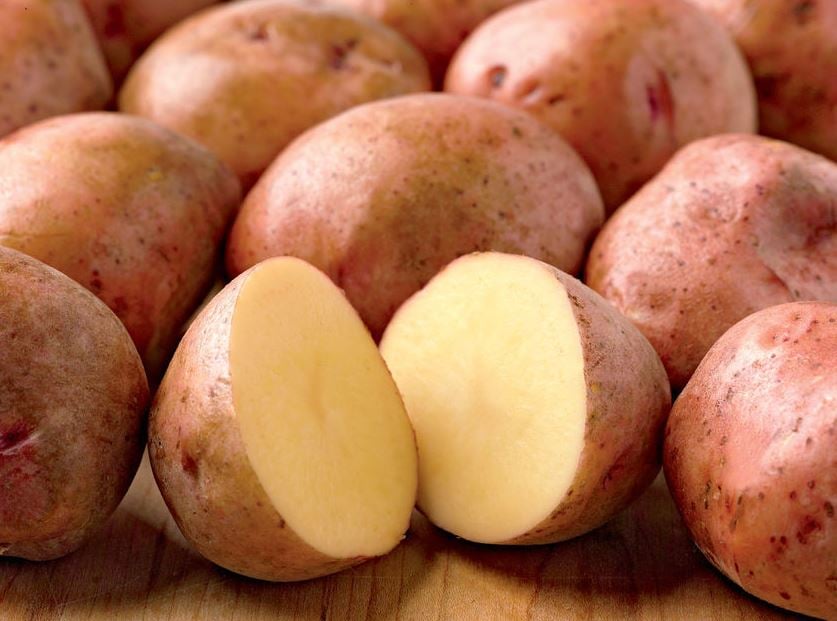Potatoes
 Rose Gold Seed Potatoes
Rose Gold Seed PotatoesPotatoes thrive in moist, well-drained soil that is rich in organic matter, so a raised bed makes an ideal growing environment. They are relatively heavy feeders, so prepare the soil before planting by adding compost and some organic fertilizer. One small chunk of potato, planted in the spring, can yield 1-6 pounds of potatoes by the end of the summer. Southern gardeners can plant potatoes in the fall for a winter harvest.
Most local garden centers stock "seed potatoes" in early spring. Like onion sets, these are regular potatoes that were grown the prior season in crowded conditions. The resulting harvest of tubers are small — less than 2" in diameter — and can be planted whole, or be cut in two pieces (each with at least two "eyes"). Ordering seed potatoes from a catalog gives you the best access to unusual colors and varieties with special characteristics.

If you wish, you can also plant regular organic potatoes from a local market. Cut the potato into chunks that each have one or two "eyes" or growing points. It's best to let the cut sides of the chunks air dry for a couple days so they seal over before going into the ground.
Potato roots develop below the seed potato and the new crop of potatoes form above it, so the potatoes need to be planted relatively deep. For each potato, dig a hole about 5" deep. Drop in the potato and cover it with about 2" of soil. Once the plant emerges, cover it with another few inches of soil and repeat until the hole has been filled to soil level. Then let the plant develop normally, pushing up a few more inches of soil around the base.
Once the plants have blossomed, you can dig down carefully and steal a few new potatoes. Just remember that the longer you wait, the bigger your potatoes will get. Toward the end of the growing season, the plants will start to wither and die back. This is the best time to harvest your potatoes. Be sure to dig them all up and bring them indoors before frost.
The Colorado potato beetle can be a serious pest. Watch for orange egg masses under the leaves and try to scrape them off before the larvae emerge. Patrol your potatoes on a daily basis, picking off and destroying any soft-bodied orange larvae or striped adult beetles. There is also an effective organic control called Bt which is a naturally-occurring bacterium that you can spray on the foliage. It sickens the larvae as they eat the leaves but will not harm any other type of insect.
Last updated: 01/28/2021
Print this Article:
Get the Dirt
Stay up to date on new articles and advice. Please fill out the information below.
